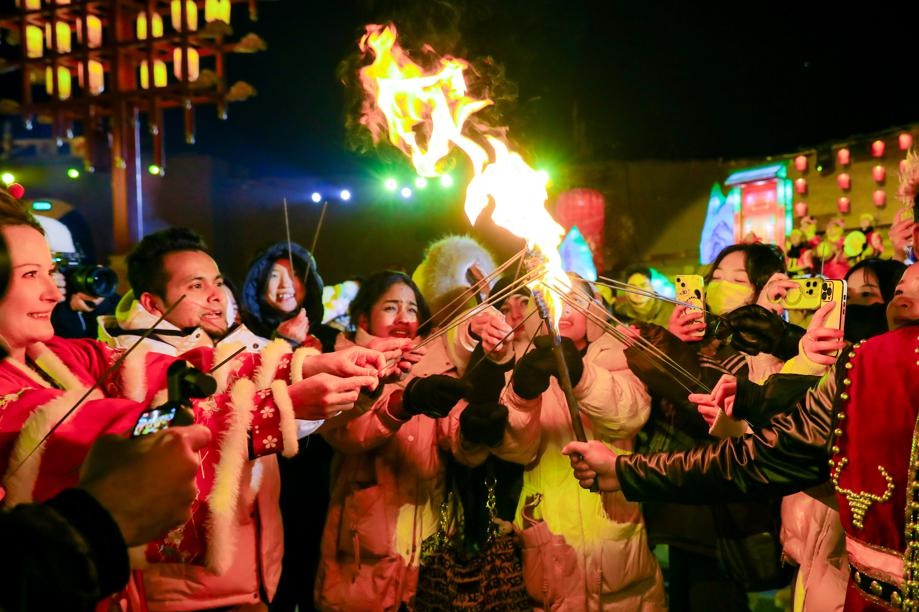How Manling became hub for medicinal herbs


Lingzhi mushrooms are being mass-produced in greenhouses as part of a growing medicinal farming industry in Manling. Just a few kilometers away from the farm, the local government has collaborated with pharmaceutical companies from wealthier regions to cultivate Chuanbeimu or Fritillaria bulbs, traditionally used for cough relief.
In a nearby pine forest, workers are excavating pits to sow seedlings of Huangjing, a herb known for its anti-inflammatory, antioxidant and immune-modulating properties, mimicking a natural wild environment.
Cheng said mass-producing such herbs can relieve pressure on environment.
"Based on our current estimates, if we want to meet the high demand by having people dig wild Chuanbeimu in the mountains, it is highly probable that within just two to three years, this species will be driven to extinction," he said.
Red Sun Family Farm is owned by Nima, a once impoverished farmer who has not only transformed his own life but also uplifted many within his ethnic Tibetan community.
His journey to prosperity began 14 years ago with the cultivation of lingzhi.
Before that, there had been twists and turns in his business endeavor. In 2007, Nima and his family of four were living in a modest 23-square-meter prefabricated home, struggling to make ends meet.
- Drug traceability code implementations reaches nearly 95%
- Pakistani satellite among 3 launched
- Shanghai to enhance community healthcare centers
- Shanghai continues to enrich ecological environment
- Shanghai to enhance education reform aligned with social needs
- Shanghai adds 622,000 new urban jobs in 2024





































